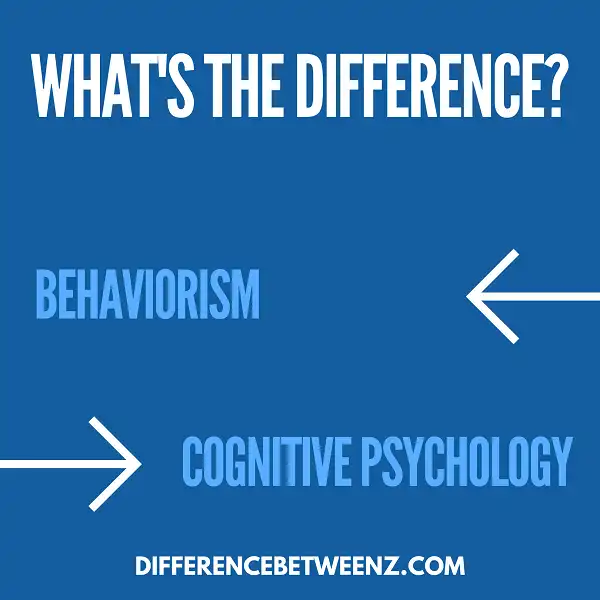Behaviorism and cognitive psychology are two of the most popular psychological approaches. They both have their own strengths and weaknesses, but which one is better? In this blog post, we’ll take a look at the key differences between behaviorism and cognitive psychology. By understanding the differences between these two approaches, you can make an informed decision about which one is right for you. So let’s get started!
What is Behaviorism?
Behaviorism is a psychological approach that emphasizes the role of environmental influences on behavior. Behaviorists believe that all behavior is learned through conditioning, either classical conditioning (a type of learning that occurs when two stimuli are paired together) or operant conditioning (a type of learning that occurs when behavior is reinforced or punished). Behaviorism has been influential in many areas of psychology, including education and treatment. In recent years, however, it has fallen out of favor with many psychologists, who argue that it fails to take into account the importance of internal mental states. Nevertheless, Behaviorism remains an important perspective in psychology.
What is Cognitive Psychology?
Cognitive psychology is the study of how people process information. It focuses on areas such as memory, language, decision-making, and problem-solving. Cognitive psychologists use a variety of methods to study the human mind, including experiments, surveys, and observations. While cognitive psychology is a relatively new field, it has already made a significant impact on the scientific community. Cognitive psychologists have helped to develop theories of how people learn and remember information. They have also provided insight into how people make decisions and solve problems. In the future, cognitive psychologists will continue to advance our understanding of the human mind.
Difference between Behaviorism and Cognitive Psychology
Behaviorism and Cognitive Psychology are two of the most influential psychological theories.
- Behaviorism, also known as Behavior Analysis, is concerned with the study of observable behavior. This theory focuses on the role of reinforcement in shaping behavior.
- In contrast, Cognitive Psychology focuses on mental processes, such as memory, perception, and language. This theory hypothesizes that people are actively processing information to make sense of their environment.
- Both Behaviorism and Cognitive Psychology have had a major impact on the field of psychology. However, they differ in their focus and approach.
Behaviorism emphasizes the importance of external factors in influencing behavior, while Cognitive Psychology emphasizes the role of internal mental processes.
Conclusion
Behaviorism and cognitive psychology are two different approaches to the study of human behavior. Behaviorism focuses on observable behaviors, while cognitive psychology looks at the inner workings of the mind, including thoughts, memories, and emotions. Each approach has its own strengths and weaknesses, and both have been used to help understand and treat psychological disorders.


